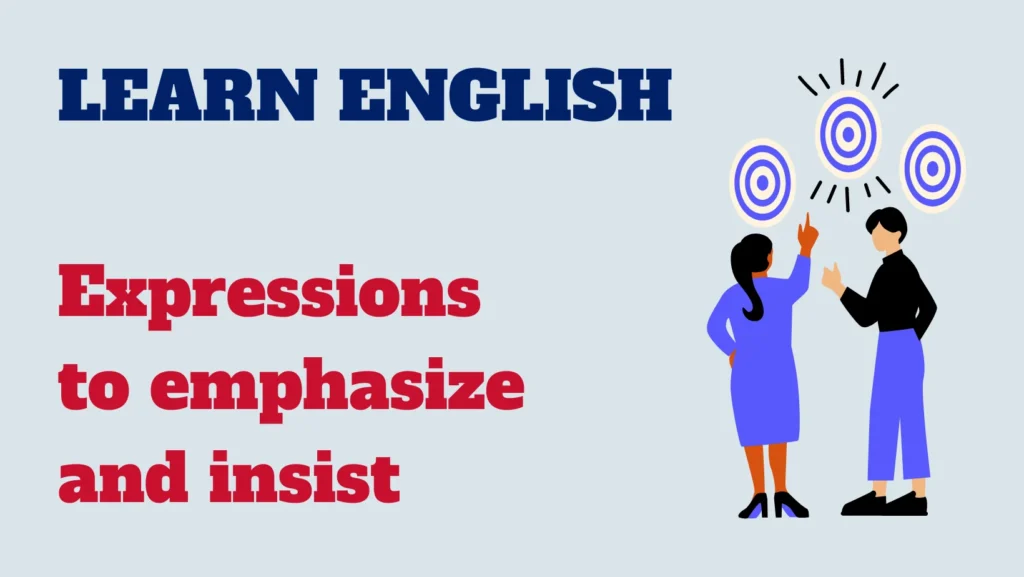When mastering a new language, it’s crucial to have a command of various ways to express ideas precisely and with intensity. Expressions that help emphasize and insist in English play a vital role in effective communication. They allow you to highlight the significance of your statements and convey emotions with confidence.

In this lesson, we will explore some English expressions that will help you strengthen your messages and communicate assertively.
Insisting with adverbs:
“Incredibly”
Highlights the exceptional nature of a situation.
Example:
“She is incredibly talented in painting.”
“Extremely”
Indicates a high degree of intensity.
Example:
“The weather is extremely hot today.”
“Absolutely”
Used to express complete agreement or strong conviction.
Example:
“I absolutely love this book!”
“Truly”
An adverb used to underscore that something is genuinely true or important.
Example:
“Her performance was truly impressive.”
Making intense comparisons:
“Far more”
Emphasizes the superiority in a comparison.
Example:
“This movie is far more exciting than the previous one.”
“Much better”
Insists on the superior quality of one thing over another.
Example:
“This laptop is much better than my old one.”
Expressing certainty:
“Without a doubt”
Expresses absolute certainty.
Example:
“This is the best option, without a doubt.”
“It’s certain that”
Asserts something with conviction.
Example:
“It’s certain that this plan will succeed.”
Using metaphors:
“The icing on the cake”
Expresses that a situation is even better due to an additional element.
Example:
“Her arrival was the icing on the cake for our gathering.”
Skillfully using these expressions to emphasize in English will enhance your ability to communicate confidently and influence your conversation partners. By understanding when and how to use these expressions, you can amplify the impact of your messages and express your emotions more nuancedly. Feel free to practice them in your daily conversations to improve your English communication skills.



